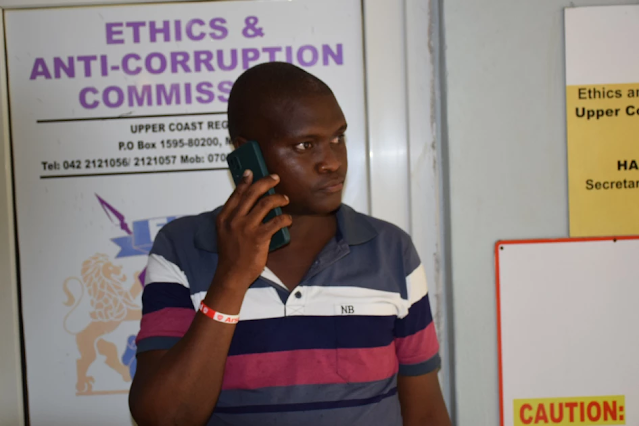Search This Blog
"Truth comes only to conquer those who have lost the art of receiving it as a friend." ~ Ravi Thakur
Featured
- Get link
- X
- Other Apps
Why Would Someone Steal Relief Food?
On the morning of Wednesday 31 January 2024, the Ethics and Anti-Corruption Commission (EACC) arrested Teddy Buya Bonaya, Assistant County Commissioner 1 for Ganze Sub-County in Kilifi County, on charges of stealing and selling relief food valued at KSh 550,200. The relief food was meant for desperate families of Tana North Sub-County in Tana River County where more than 100,000 people are staring starvation in the face, victims of myriad disasters across the County, the latest being floods, heavy rains, and windstorms.
The ethical conduct of government officials holds paramount importance in ensuring the well-being and trust of citizens. When those entrusted with the responsibility of distributing relief food engage in acts of stealing and selling these essential supplies, it not only violates public trust but also raises profound ethical concerns. To explore the ethical dimensions surrounding the actions of government officials involved in the illicit trade of relief food, we must examine the impact on society and the underlying principles that should guide public servants.
Central to any discussion on the ethics of government officials stealing and selling relief food is the application of ethical frameworks. Utilitarianism, which assesses actions based on their overall societal consequences, highlights the negative impact such actions have on vulnerable populations. Deontological ethics, focusing on the inherent duty of public officials to act in the public’s best interest, underscores the breach of trust and responsibility when officials engage in corruption. These frameworks provide a foundation for understanding the ethical implications of such actions.
Violation of Public Trust
Government officials are entrusted with the well-being of their citizens, especially during times of crisis when relief efforts are critical. Stealing and selling relief food represents a betrayal of public trust, as citizens expect their leaders to act with integrity and prioritise the welfare of the community. The violation of this trust erodes the foundation of a functional society, leading to diminished confidence in governmental institutions.
Impact on Vulnerable Populations
The consequences of government officials engaging in corrupt practices with relief food are particularly severe for vulnerable populations. Those who depend on these supplies for survival bear the brunt of such unethical actions. The diversion of relief resources exacerbates their suffering, leading to hunger, malnutrition, and an overall decline in health.
Social Injustice and Inequality
The act of stealing and selling relief food deepens existing social injustices and inequalities within a society. Government officials, who are meant to be champions of justice and equality, perpetuate a system that favours the powerful and leaves the marginalised even more disenfranchised. This further widens the gap between the privileged and the disadvantaged, eroding the social fabric and fostering resentment.
Corrosion of Democratic Values
A government's legitimacy rests on democratic principles, which include transparency, accountability, and the rule of law. When officials engage in corrupt practices, such as stealing and selling relief food, these democratic values are compromised. Citizens lose faith in the democratic process, viewing it as a system that fails to protect their interests and uphold justice. This erosion of democratic values weakens the very foundations of a nation.
Prevention and Accountability
Addressing the ethics of government officials stealing and selling relief food requires a multi-faceted approach. Prevention measures, such as stringent oversight, transparent distribution processes, and robust anti-corruption mechanisms, are essential to curb such unethical behaviour. Additionally, establishing accountability through legal consequences for those found guilty reinforces the seriousness of these offences and acts as a deterrent.
The ethics of government officials stealing and selling relief food demand careful consideration due to their profound impact on society. The violation of public trust, the exacerbation of social injustices, and the erosion of democratic values underscore the gravity of such actions. Upholding ethical principles, implementing preventative measures, and ensuring accountability are crucial steps in restoring trust, promoting justice, and safeguarding the welfare of the most vulnerable members of society.
- Get link
- X
- Other Apps
Popular Posts

The One On Why Uganda Produces Shitty Ads
- Get link
- X
- Other Apps

Of Australian Bogans Masquerading As Creatives In Nairobi Agencies
- Get link
- X
- Other Apps

Comments
Post a Comment